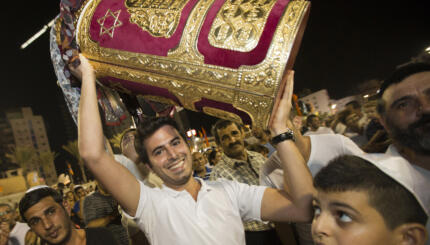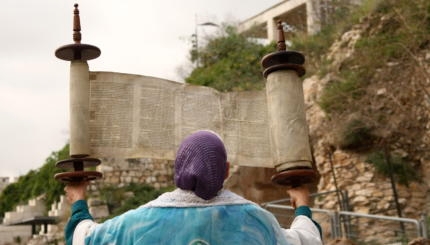Last week at JELO, a weekly interdenominational learning program at NYU’s Bronfman Center, Rabbi Yehuda Sarna, the University Chaplain entered the room with an incomplete Torah scroll. Rabbi Sarna gathered the crowd of over 60 students and announced that this past summer a man told him that he wanted to donate a Torah to the Bronfman Center. Rabbi Sarna agreed but suggested that instead of returning with a completed Torah scroll, the students would help complete the scroll.Each week for the next few weeks, a different student will get to add a letter to the Torah scroll. Rabbi Sarna also introduced a halakhic question:”If a person’s grandparents or parents have already fulfilled the mitzvah of writing a Torah scroll, do their children still need to write one, or can their obligation be fulfilled through their parents or grandparents?”
Rabbi Sarna’s answer was touching:”A person cannot fulfill their obligation to write a Torah scroll through someone else, and they cannot fulfill it simply by knowing that someone who came before them wrote a Torah scroll. We must each have a direct link to the Torah, not a disconnected one. Perhaps we can learn from this that we must each have a personal, unique connection to the Torah and make the Torah our own. This commandment to write our own Torah embodies this idea of personalizing the Torah.”
Learn more about the mitzvah of writing a Torah and the laws regarding this commandment in MJL’s article on Sofrut.
mitzvah
Pronounced: MITZ-vuh or meetz-VAH, Origin: Hebrew, commandment, also used to mean good deed.
Torah
Pronunced: TORE-uh, Origin: Hebrew, the Five Books of Moses.
Yehuda
Pronounced: yuh-HOO-dah or yuh-hoo-DAH (oo as in boot), Origin: Hebrew, Judah, one of Joseph’s brothers in the Torah.


